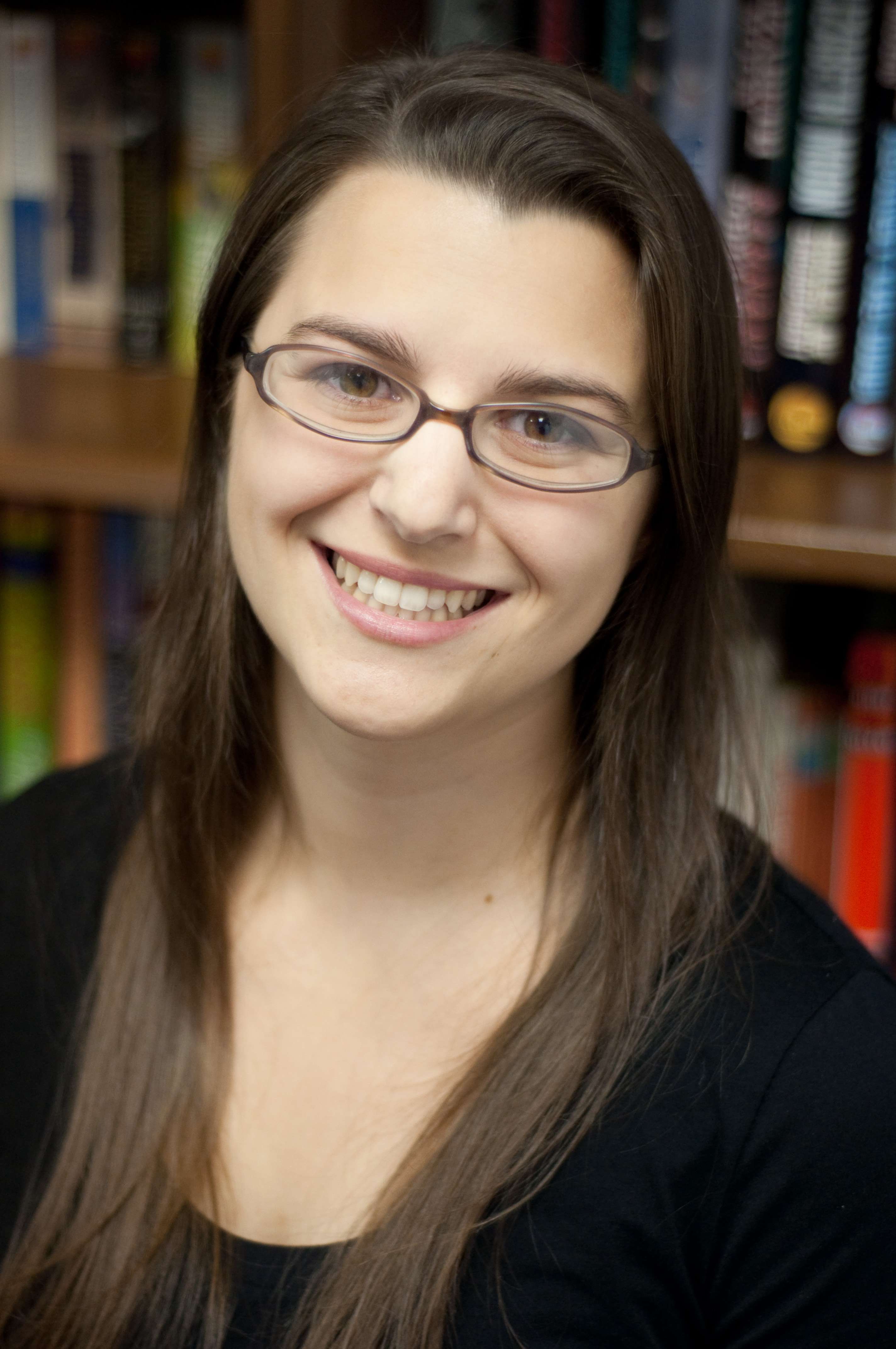Lisa Rodgers grew up in the San Francisco Bay Area and graduated from California State University, Sacramento, in 2011 with a bachelor’s degree in English Literature and a minor in German literature-in-translation, history, and culture (sadly, she doesn’t speak German, although it’s on her bucket list). She moved to New York City in 2012 to attend NYU’s Summer Publishing Institute and joined the JABberwocky team a few months later. She’s previously worked at San Francisco Book Review and Barnes & Noble, interned at Levine Green Rostan Literary Agency, and was a submissions reader for Lightspeed Magazine.
literature-in-translation, history, and culture (sadly, she doesn’t speak German, although it’s on her bucket list). She moved to New York City in 2012 to attend NYU’s Summer Publishing Institute and joined the JABberwocky team a few months later. She’s previously worked at San Francisco Book Review and Barnes & Noble, interned at Levine Green Rostan Literary Agency, and was a submissions reader for Lightspeed Magazine.
LS: Thanks for taking the time to talk to us. We’re honored you’re here. I read in your bio that your education is in English Literature. How did your education prepare you for the business of publishing?
I took a mixture of “classic” literature classes (Hemingway, Austen, etc), as well as genre classes. It was very interesting to see how authors from both ends of spectrum handled characterization, plot development, tropes, and how contemporary events or philosophies affected what was being written at the time. That directly ties in to my job, where I’m evaluating manuscripts for all of those things, and how they can fit into the current marketplace. And, of course, do I connect with the material? That last one just comes down to taste, which is constantly developing.
LS: What in your childhood informed your love of reading and what was your favorite book growing up?
My parents are extremely pro-reading, and they took an active role in encouraging me to read. There were many weekend trips to the bookstore, where they essentially allowed me free rein (within reason, of course) to purchase whatever I wanted.
Choosing a “favorite book” is so tough! There are so many books I loved, and still do. I’m going to cheat a little and pick two. Both were very formative, and I’ve re-read them several times each: BLACK SUN RISING by C.S. Friedman and MAGIC’S PAWN by Mercedes Lackey.
LS: As someone whose career is focused on great fiction, are you ever able to read a book for pleasure without editing it?
Yes, but it can be tough. Sometimes I need to remind myself to just let certain things go, because there isn’t a whole lot of input I can have on a published book, is there? So it’s also a bit freeing, in that regard.
LS: Many writers seem eager to query before their manuscripts are ready. What are the top five elements you believe a manuscript should have before querying?
Internal consistency, organic worldbuilding, plot/character development, an assured writing “voice”, and an understanding of its place in within its genre.
LS: Traditional publishing models are changing, particularly how books are distributed, (Self-publishing and the e-book). What are your thoughts on the future of publishing?
I love that there are so many options for writers now. If you want to publish traditionally, you can. If you want to self-publish, you can. If you want to write short fiction, there are no shortages of places to submit. If you want to write an experimental piece but don’t think there’s a market for it, you can set up a Kickstarter or a patreon account and see if people are willing to support it. The opportunities are endless! That being said, because there are so many options, sometimes it can be very difficult for new writers to “break in.” Determination and perseverance are two very important traits a writer should cultivate.
LS: What’s the one thing you wish writers knew before they begin the query process?
Read widely and deeply in your genre, more than just the bestsellers. Knowing how your work compares to less popular but still successful authors can help you more accurately describe your manuscript, and help avoid common genre clichés.
LS: What do you look for in a book as a reader that makes you take a second glance? Is this the same for all the genres you represent?
I look for authenticate voices and well-developed characters. The specifics of both can change depending on the genre (for example, an unlikeable protagonist can be fine for SFF, but usually isn’t for romance). In general, though, those qualities are things I look for regardless of genre.
LS: What are you not seeing enough of in terms of genres and what would you love to see in your Inbox?
When I open again to queries, I’d love to see more science fiction set in space. Anything from space opera to military science fiction, from interstellar politics to intraship squabbles. If it’s space, I want to see it!
Find out more about Lisa on JABerwocky.

